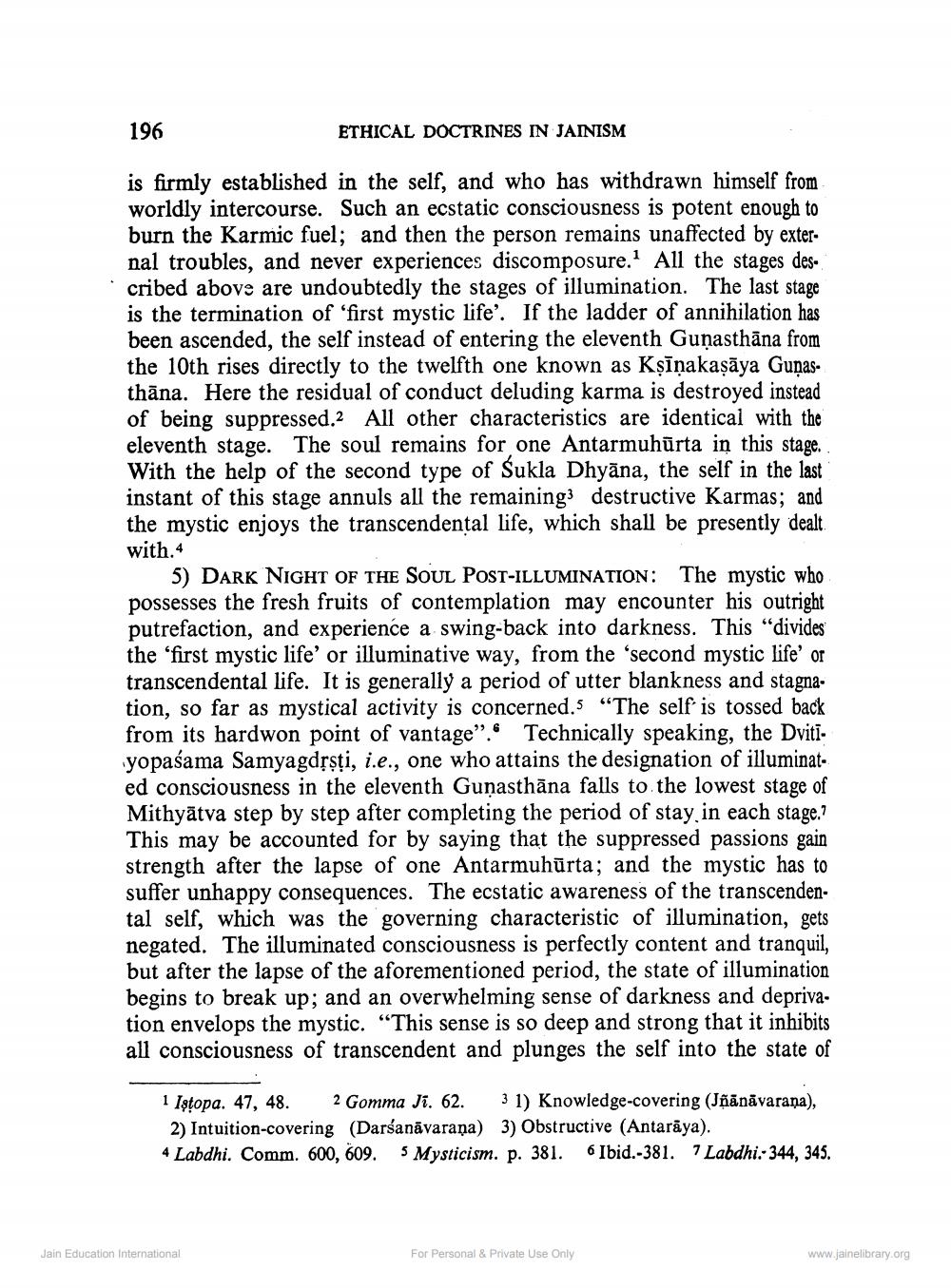________________
196
ETHICAL DOCTRINES IN JAINISM
is firmly established in the self, and who has withdrawn himself from worldly intercourse. Such an ecstatic consciousness is potent enough to burn the Karmic fuel; and then the person remains unaffected by external troubles, and never experiences discomposure. All the stages described above are undoubtedly the stages of illumination. The last stage is the termination of 'first mystic life'. If the ladder of annihilation has been ascended, the self instead of entering the eleventh Guņasthāna from the 10th rises directly to the twelfth one known as Kșīņakaṣāya Guņasthāna. Here the residual of conduct deluding karma is destroyed instead of being suppressed. All other characteristics are identical with the eleventh stage. The soul remains for one Antarmuhūrta in this stage. With the help of the second type of Sukla Dhyāna, the self in the last instant of this stage annuls all the remaining3 destructive Karmas; and the mystic enjoys the transcendental life, which shall be presently dealt with.4
5) DARK NIGHT OF THE SOUL POST-ILLUMINATION: The mystic who possesses the fresh fruits of contemplation may encounter his outright putrefaction, and experience a swing-back into darkness. This "divides the 'first mystic life' or illuminative way, from the 'second mystic life' or transcendental life. It is generally a period of utter blankness and stagnation, so far as mystical activity is concerned. “The self is tossed back from its hardwon point of vantage”.. Technically speaking, the Dviti. yopaśama Samyagdșsti, i.e., one who attains the designation of illuminated consciousness in the eleventh Gunasthāna falls to the lowest stage of Mithyātva step by step after completing the period of stay in each stage.? This may be accounted for by saying that the suppressed passions gain strength after the lapse of one Antarmuhūrta; and the mystic has to suffer unhappy consequences. The ecstatic awareness of the transcendental self, which was the governing characteristic of illumination, gets negated. The illuminated consciousness is perfectly content and tranquil, but after the lapse of the aforementioned period, the state of illumination begins to break up; and an overwhelming sense of darkness and depriva. tion envelops the mystic. “This sense is so deep and strong that it inhibits all consciousness of transcendent and plunges the self into the state of
1 Istopa. 47, 48. 2 Gomma Ji. 62. 31) Knowledge-covering (Jõānāvarana),
2) Intuition-covering (Darsanāvaraña) 3) Obstructive (Antarāya). 4 Labdhi. Comm. 600, 609. 5 Mysticism. p. 381. Ibid.-381. 7 Labdhi.- 344, 345.
Jain Education International
For Personal & Private Use Only
www.jainelibrary.org




